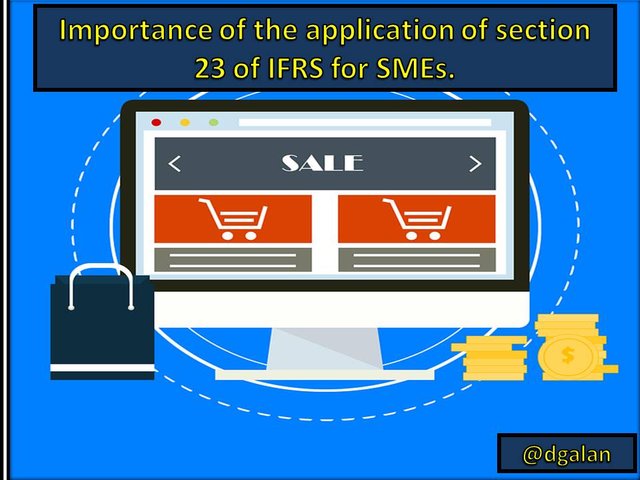Written by:Diomer Antonio Galán Rincón.
Bachelor's Degree.Public Accounting / MSc.Science of Higher Education.

Author: @dgalan,through Power Point 2010 tool, and using public domain image Pixabay
Modern organizations must respond to the new requirements and demands of the economic context by adapting their productive and organizational structures, which includes not only the production processes and forms of organization, but also their management and accounting structure. This makes the levels of efficiency, effectiveness and productivity increasingly better, which can generate competitive advantages over the competition. However, it can also mean the survival of crisis situations in the economy of some countries.
In view of this situation, it is necessary for the accounting process to adapt to the global conditions of the existing standards, in this sense, the International Financial Reporting Standards (IFRS) arise, which establish standard procedures in the accounting treatment of the different economic and financial actions of the companies.

Image taken from:Pixabay
In this order, it is necessary to point out that the IFRS for SMEs, according to the International Financial Reporting Standards Committee (IASC) have several sections dedicated to different specific cases in the accounting process.
¿What does Section 23 IFRS for SMEs say?.
In the case of Section 23 of the IFRS for SMEs, it will be applied when accounting for revenue from ordinary activities from the following transactions and events:
(a) The sale of goods (whether or not the entity produces them for sale or acquires them for resale).
(b) The rendering of services.
(c) Construction contracts in which the entity is the contractor.
According to Luna and Vargas (2017), these are a single "set of accounting standards that provide companies with financial information of a global nature that meet quality parameters, designed to be understood in a simple language capable of being understood by users who require high quality information". These standards have a global character that helps SMEs to integrate into the international market in an easier way, as well as access to international financial instruments.

Image taken from:Pixabay
For this reason, if section 23 of the IFRS for SMEs is not correctly applied in relation to the recording of ordinary income, problems could arise in the evaluation of the information in the financial statements, which could be rejected at the time of requesting a loan from the banking entities and also state entities that oversee the economic and financial activity, such as the SENIAT (National Integrated Customs and Tax Administration Services), because the real recognition of income from ordinary activities in the company is not being carried out.
In addition to the above, it is also probable that the internationalization strategy that the companies have for their activities, which is a strategic objective, will fail due to the fact that the reports and presentation of the financial statements are not in accordance with international standards, because they do not have a series of standards for their accounting and administrative processes. a) The sale of goods (whether or not the entity produces them for sale or acquires them for resale.
I hope you like my article and I would appreciate all your comments.
bibliography consulted:

Hello @dgalan
Interesting these you mention "it is also likely that the internationalization strategy that companies have for their activities, which is a strategic objective, fails because the reporting and presentation of financial statements do not conform to international standards", the competition of any business sector in international markets happens precisely to comply with international standards.
Best regards, be well.
Downvoting a post can decrease pending rewards and make it less visible. Common reasons:
Submit
Very true your appreciation, friend @lupafilotaxia hence the importance of adopting the Niff for SMEs, so that the information can be compared with other companies in the same industry anywhere in the world and these can also be analyzed by foreign investors.
Thank you very much for your comments
Downvoting a post can decrease pending rewards and make it less visible. Common reasons:
Submit